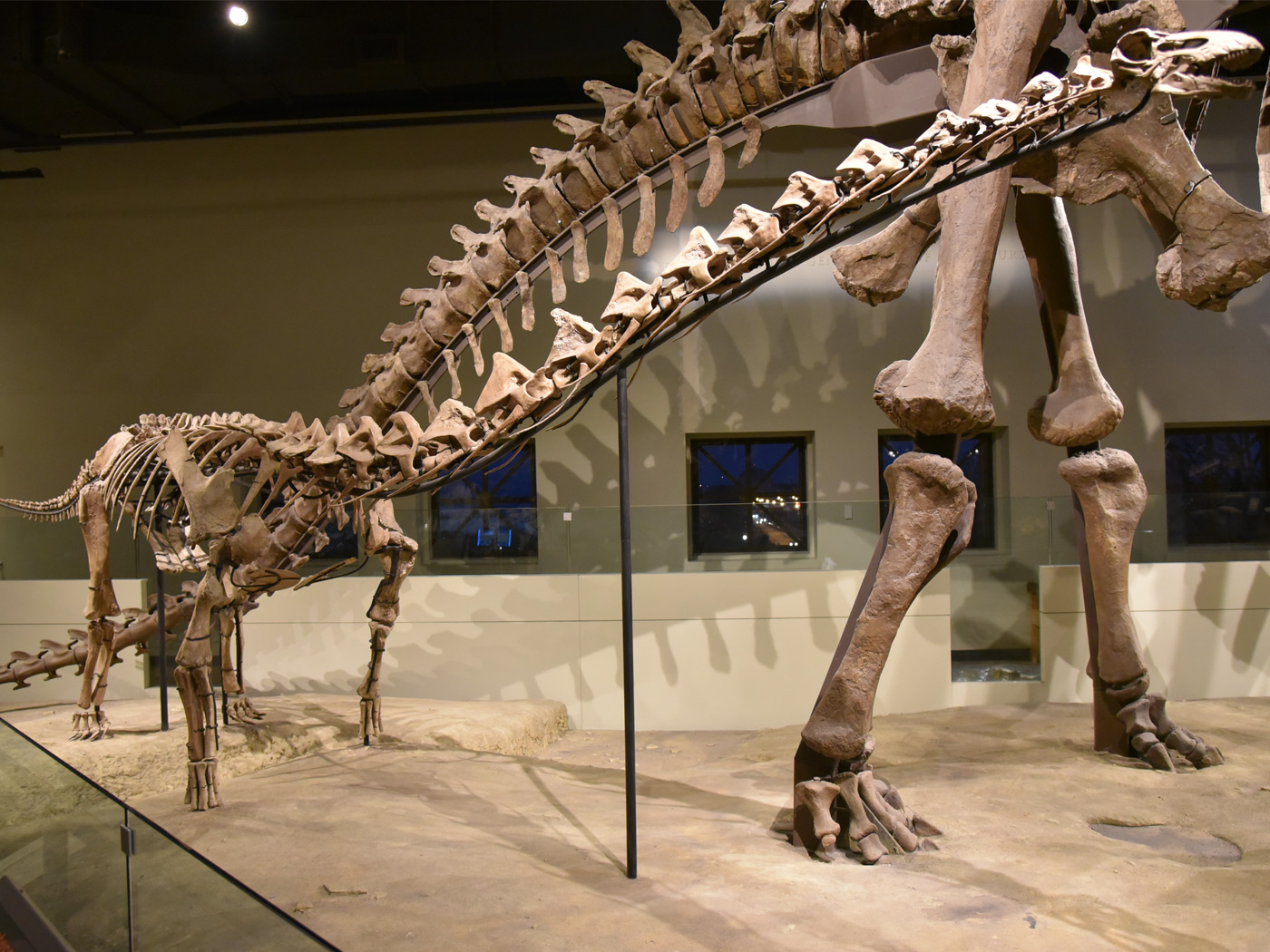The evolutionary system has been entrenched for so long that many people who otherwise accept the Bible as infallible have deemed it expedient to compromise on this issue. Thus, evolution has been called, "God's method of creation"; and the Genesis record of the six days of creation has been reinterpreted in terms of the evolutionary ages of historical geology. These geological ages themselves have been accommodated in Genesis either by placing them in an assumed "gap" between Genesis 1:1 and 1:2 or by changing the "days" of creation into the "ages" of evolution.
Theories of this kind raise more problems than they solve, however. It is more productive to take the Bible literally and then to interpret the actual facts of science within its revelatory framework. If the Bible cannot be understood, it is useless as revelation. If it contains scientific fallacies, it could not have been given by inspiration.
The specific purpose of this study is to show that all such theories which seek to accommodate the Bible to evolutionary geology are invalid and, therefore, should be abandoned.
Theistic Evolution
Evolution is believed by its leading advocates to be a basic principle of continual development, of increasing order and complexity, throughout the universe. The complex elements are said to have developed from simpler elements, living organisms to have evolved from non-living chemicals, complex forms of life from simpler organisms, and even man himself to have gradually evolved from some kind of ape-like ancestor. Religions, cultures, and other social institutions are likewise believed to be continually evolving into higher forms.
Thus, evolution is a complete world-view, an explanation of origins and meanings without the necessity of a personal God who created and upholds all things. Since this philosophy is so widely and persuasively taught in our schools, Christians are often tempted to accept the compromise position of "theistic evolution", according to which evolution is viewed as God's method of creation. However, this is basically an inconsistent and contradictory position. A few of its fallacies are as follows:
( 1) It contradicts the Bible record of creation. Ten times in the first chapter of Genesis, it is said that God created plants and animals to reproduce "after their kinds". The Biblical "kind" may be broader than our modern "species" concept, but at least it implies definite limits to variation. The New Testament writers accepted the full historicity of the Genesis account of creation. Even Christ Himself quoted from it as historically accurate and authoritative (Matthew 19:4-6).
(2) It is inconsistent with God's methods. The standard concept of evolution involves the development of innumerable misfits and extinctions, useless and even harmful organisms. If this is God's "method of creation", it is strange that He would use such cruel, haphazard, inefficient, wasteful processes. Furthermore, the idea of the "survival of the fittest", whereby the stronger animals eliminate the weaker in the "struggle for existence" is the essence of Darwin's theory of evolution by natural selection, and this whole scheme is flatly contradicted by the Biblical doctrine of love, of unselfish sacrifice, and of Christian charity. The God of the Bible is a God of order and of grace, not a God of confusion and cruelty.
(3) The evolutionary philosophy is the intellectual basis of all anti-theistic systems. It served Hitler as the rationale for Nazism and Marx as the supposed, scientific basis for communism. It is the basis of the various modern methods of psychology and sociology that treat man merely as a higher animal and which have led to the misnamed "new morality" and ethical relativism. It has provided the pseudo-scientific rationale for racism and military aggression. Its whole effect on the world and mankind has been harmful and degrading. Jesus said: "A good tree cannot bring forth evil fruit" (Matthew 7:18). The evil fruit of the evolutionary philosophy is evidence enough of its evil roots.
Thus, evolution is Biblically unsound, theologically contradictory. and sociologically harmful.
Progressive Creation
Some Christians use this term "progressive creation" instead of "theistic evolution", the difference being the suggestion that God interjected occasional acts of creation at critical points throughout the geological ages. Thus, for example, man's soul was created, though his body evolved from an ape-like ancestor.
This concept is less acceptable than theistic evolution, however. It not only charges God with waste and cruelty (through its commitment to the geologic ages) but also with ignorance and incompetence. God's postulated intermittent creative efforts show either that He didn't know what He wanted when He started the process or else that He couldn't provide it with enough energy to sustain it until it reached its goal. A god who would have to create man by any such cut-and-try discontinuous, injurious method as this can hardly be the omniscient, omnipotent, loving God of the Bible.
The Day-Age Theory
According to the established system of historical geology, the history of the earth is divided into a number of geological ages. The earth is supposed to have evolved into its present form and inhabitants over a vast span of geologic ages, beginning about a billion years ago.
In contrast. the Biblical revelation tells us that God created the entire universe in six days only a few thousand years ago. Consequently, many Christian scholars have tried to find some way of reinterpreting Genesis to fit the framework of history prescribed by the geologists.
The most popular of these devices has been the "day-age" theory, by which the "days" of creation were interpreted figuratively as the "ages" of geology. However, there are many serious difficulties with this theory.
The Hebrew word for "day" is "yom" and the word can occasionally be used to mean an indefinite period of time, if the context warrants. In the overwhelming preponderance of its occurrences in the Old Testament, however, it means a literal day, that is, either an entire solar day or the daylight portion of a solar day. It was, in fact, defined by God Himself the very first time it was used, Genesis 1:5, where we are told that "God called the light, day." It thus means, in the context, the "day" in the succession of "day and night" or "light and darkness".
Furthermore, the word is never used to mean a definite period of time, in a succession of similar periods (that is, "the first day", "the second day etc.) or with definite terminal points (that is, noted by "evening and morning", etc.) unless the period is a literal solar day. And there are hundreds of instances of this sort in the Bible.
Still further, the plural form of the word (Hebrew "yamim") is used over 700 times in the Old Testament and always, without exception, refers to literal "days". A statement in the Ten Commandments written on a tablet of stone directly by God Himself is very significant in this connection, where He uses this word and says plainly: "In six days, the Lord made heaven and earth, the sea, and all that in them is" (Exodus 20:11).
Not only is the day-age theory unacceptable Scripturally, but it also is grossly in conflict with the geological position with which it attempts to compromise. There are more than 20 serious contradictions between the Biblical order and events of the creative days and the standard geologic history of the earth and its development, even if it were permissible to interpret the "days" as "ages". For example, the Bible teaches that the earth existed before the stars, that it was initially covered by water, that fruit trees appeared before fishes, that plant life preceded the sun, that the first animals created were the whales, that birds were made before insects, that man was created before woman, and many other such things, all of which are contradicted by historical geologists and paleontologists.
But the most serious fallacy in the day-age theory is theological. It charges God with the direct responsibility for five billion years of history of purposeless variation, accidental changes, evolutionary blind alleys, numerous misfits and extinctions, a cruel struggle for existence, with preservation of the strong and extermination of the weak, of natural disasters of all kinds, rampant disease, disorder, and decay, and, above all, with death. The Bible teaches that, at the end of the creation period, God pronounced His whole creation to be "very good", in spite of all this. It also teaches plainly that this present type of world, "groaning and travailing in pain" (Romans 8:22) only resulted from man's sin and God's curse thereon. "By one man sin entered into the world and death by sin" (Romans 5:12). "God is not the author of confusion" (I Corinthians 14:33).
The Gap Theory
Two theories for harmonizing the First chapter of Genesis with the geologic ages have been advanced, one placing the geologic ages "during" the six days of creation (thus making the "days" into "ages"), and the other placing the geologic ages "before" the six days (thus making them days of "recreation" following a great cataclysm which had destroyed the primeval earth). The "day-age theory" has been shown to be an impossible compromise, both Biblically and scientifically.
The "gap theory" likewise involves numerous serious fallacies. The geologic ages cannot be disposed of merely by ignoring the extensive fossil record on which they are based. These supposed ages are inextricably involved in the entire structure of the evolutionary history of the earth and its inhabitants, up to and including man. The fossil record is the best evidence for evolution (in fact, the only such evidence which indicates evolution on more than a trivial scale). Furthermore, the geologic ages are recognized and identified specifically by the fossil contents of the sedimentary rocks in the earth's crust. The very names of the ages show this. Thus, the "Paleozoic Era" is the era of "ancient life", the "Mesozoic Era" of "intermediate life", and the "Cenozoic Era" of "recent life". As a matter of fact, the one primary means for dating these rocks in the first place has always been the supposed "stage-of-evolution" of the contained fossils.
Thus, acceptance or the geologic ages implicitly involves acceptance of the whole evolutionary package. Most of the fossil forms preserved in the sedimentary rocks have obvious relatives in the present world, so that the "re-creation" concept involves the Creator in "re-creating" in six days of the same animals and plants which had been previously developed slowly over long ages, only to perish violently in a great pre-Adamic cataclysm.
The gap theory, therefore, really does not face the evolution issue at all, but merely pigeon-holes it in an imaginary gap between Genesis 1:1 and 1:2. It leaves unanswered the serious problem as to why God would use the method of slow evolution over long ages in the primeval world, then destroy it, and then use the method of special creation it to re-create the same forms He had just destroyed.
Furthermore, there is no geologic evidence of such a worldwide cataclysm in recent geologic history. In fact, the very concept of a worldwide cataclysm precludes the geologic ages. which are based specifically on the assumption that there have been no such worldwide cataclysms. As a device for harmonizing Genesis with geology, the gap theory is self-defeating.
The greatest problem with the theory is that it makes God the direct author of evil. It implies that He used the methods of struggle, violence, decay, and death on a worldwide scale for at least three billion years in order to accomplish His unknown purposes in the primeval world. This is the testimony of the fossils and the geologic ages which the theory tries to place before Genesis 1:2. Then, according to the theory, Satan sinned against God in heaven (Isaiah 14:12-15; Ezekiel 28:11-17), and God cast him out of heaven to the earth, destroying the earth in the process in the supposed pre-Adamic cataclysm. Satan's sin in heaven, however, cannot in any way account for the age-long spectacle of suffering and death in the world during the geologic ages which preceded his sin! Thus. God alone remains responsible for suffering, death, and confusion, and without any reason for it.
The Scripture says, on the other hand, at the end of the six days of creation, "And God saw everything that he had made (e.g., including not only the entire earth and all its contents, but all the heavens as well—note Genesis 1:16; 2:2, etc.) and, behold, it was very good" (Genesis 1:31). Death did not "enter the world" until man sinned (Romans 5:12; I Corinthians 15:21). Evidently even Satan's rebellion in heaven had not yet taken place, because everything was pronounced "very good" there, too.
The real answer to the meaning of the great terrestrial graveyard—the fossil contents of the great beds of hardened sediments all over the world—will be found neither in the slow operation of uniform natural processes over vast ages of time nor in an imaginary cataclysm that took place before the six days of God's perfect creation. Rather, it will be found in a careful study of the very real world-wide cataclysm described in Genesis 6 through 9 and confirmed in many other parts of the Bible and in the early records of nations and tribes all over the world, namely, the great Flood of the days of Noah. Evidences for and results of this worldwide flood are discussed in detail in Impact Series No. 6.
Conclusion
Only a few of the many difficulties with the various accommodationist theories have been discussed, but even these-have shown that it is impossible to devise a legitimate means of harmonizing the Bible with evolution. We must conclude, therefore, that if the Bible is really the Word of God (as its writers allege and as we believe) then evolution and its geological age-system must be completely false. Since the Bible cannot be reinterpreted to correlate with evolution, Christians must diligently proceed to correlate the facts of science so with the Bible.
* Henry M. Morris is Director of the Institute for Creation Research, as well as the Academic Vice-President of Christian Heritage College. He received his Ph.D. in hydraulics, with minors in geology and mathematics. He has spent thirty years in education and research, including thirteen years as Professor of Hydraulic Engineering and Chairman of the Department of Civil Engineering at the Virginia Polytechnic Institute and State University. He is also President of the Creation Research Society.




















